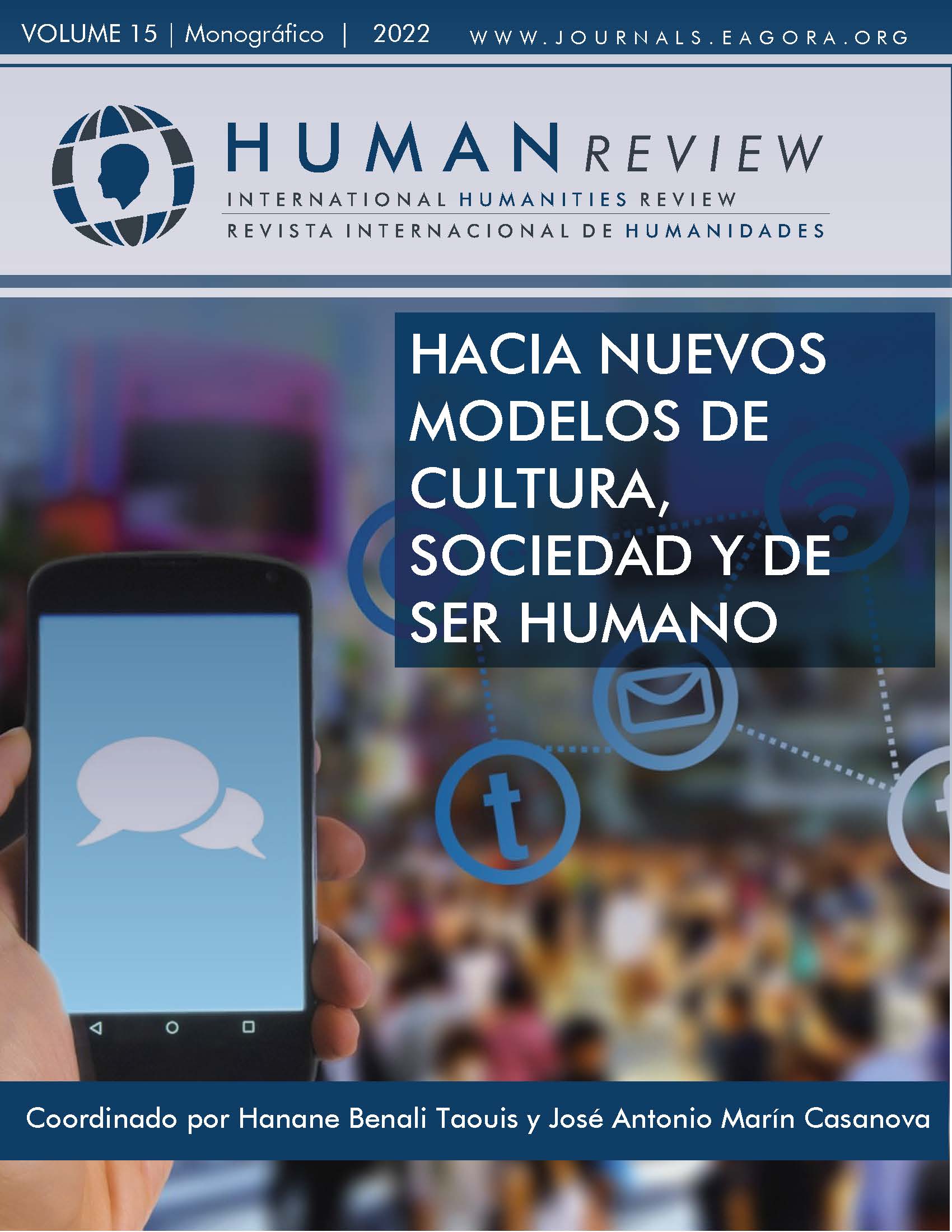Future expectations of venezuelan migrants stranded in colombia during the pandemic
DOI:
https://doi.org/10.37467/revhuman.v11.4356Keywords:
Crisis, Venezuela, Migration, Pandemic, Future, Shelter, ReturnAbstract
This article analyzes the future expectations of Venezuelan migrants who are confined during the pandemic. The field work is carried out in the year 2020 through interviews in the shelter of the Scalabrinian Mission in Cúcuta, Colombia. We address the idea of illusion and dissimulation by A. Sayad, future expectations from F. Aliaga, and the concept of risk with U. Beck. It is concluded that people, despite the difficulties, maintain the hope of reaching a destination in which to improve their quality of life and be able to get ahead.
References
Aliaga, F. (2014). El inmigrante como chivo expiatorio. En F. Álvarez, P. Chavero, y M. Olle (Cords.). Amawta. Seminarios de investigación (pp.143-184). Editorial IAEN.
Alto Comisionado de las Naciones Unidas para los Refugiados (ACNUR) (2017). „Migrantes en situaciones de vulnerabilidad“. Perspectiva del ACNUR. https://www.refworld.org.es/docid/597c03374.html
Beck, U. (2009). La sociedad del riesgo global. Siglo XXI.
Bermúdez, Y., Mazuera-Arias, R., Albornoz-Arias, N., y Morffe, M. (2018). Informe sobre la movilidad humana venezolana. Realidades y perspectivas de quienes emigran [9 de abril al 6 de mayo de 2018]. San Cristóbal, Venezuela, Servicio Jesuita a Refugiados (SJR). https://bonga.unisimon.edu.co/handle/20.500.12442/4619
Feline Freier, L. y Castillo Jara, S. (2021). Movilidad y políticas migratorias en América Latina en tiempos de COVID-19. Anuario CIDOB de la Inmigración 2020 (enero de 2021), 50-65. DOI: doi.org/10.24241/AnuarioCIDOBInmi.2020.50
Grupo Interagencial sobre Flujos Migratorios Mixtos (2021). GIFMM Colombia: evaluación conjunta de necesidades. Junio 2021. Ronda 5.
Human Rights Watch. (2018). El éxodo venezolano. Urge una respuesta regional ante una crisis migratoria sin precedentes. https://www.hrw.org/sites/default/files/report_pdf/venezuela0918sp_web.pdf
Organización de las Naciones Unidas para la Educación, la Ciencia y la Cultura (UNESCO) y Consejo para Prevenir y Eliminar la Discriminación de la Ciudad de México (COPRED) (2021). Movilidad Humana y COVID-19: Una aproximación a la respuesta de los gobiernos locales de América Latina y el Caribe. Informe Técnico.
Koechlin, J., y Eguren, J. (2018), El éxodo venezolano: Entre el exilio y la migración. Colección OBIMID. https://n9.cl/zblfq
Mazuera-Arias, R., Albornoz-Arias, N., Morffe, M., Ramírez-Martínez, C. y Carreño-Paredes, M. (2019). Informe de movilidad humana venezolana II. Realidades y perspectivas de quienes emigran [8 de abril al 5 de mayo de 2019]. https://bonga.unisimon.edu.co/handle/20.500.12442/4621
Migración Colombia (2020). Radiografía Venezolanos en Colombia corte a 30 de octubre de 2020. https://n9.cl/vsoy1
R4V. Plataforma de Coordinación Interagencial para Refugiados y Migrantes de Venezuela (2022). RMRP 2022. Plan de Respuesta a Refugiados y Migrantes (RMRP). Enero-diciembre de 2022.
R4V. Plataforma de Coordinación Interagencial para Refugiados y Migrantes de Venezuela (2021). RMRP 2021. Para Refugiados y Migrantes (RMRP). Plan de respuesta regional. Enero-diciembre de 2021.
Sayad, A. (2010). La doble ausencia. De las ilusiones del emigrado a los padecimientos del inmigrado. Anthropos
Schreirer, M. (2014). Qualitative content analysis. En Uwe Flick (org.). The Sage Handbook of Qualitative Data Analysis (170-183). Sage.
Universidad del Rosario y Konrad Adenauer Stiftung (2018). Retos y oportunidades de la movilidad humana venezolana en la construcción de una política migratoria colombiana. Universidad del Rosario.
Universidad del Rosario y Konrad Adenauer Stiftung (2019). Las migraciones en el contexto colombo-venezolano. Universidad del Rosario.
Downloads
Published
How to Cite
Issue
Section
License
Those authors who publish in this journal accept the following terms:
- Authors will keep the moral right of the work and they will transfer the commercial rights.
- After 1 year from publication, the work shall thereafter be open access online on our website, but will retain copyright.
- In the event that the authors wish to assign an Creative Commons (CC) license, they may request it by writing to publishing@eagora.org









